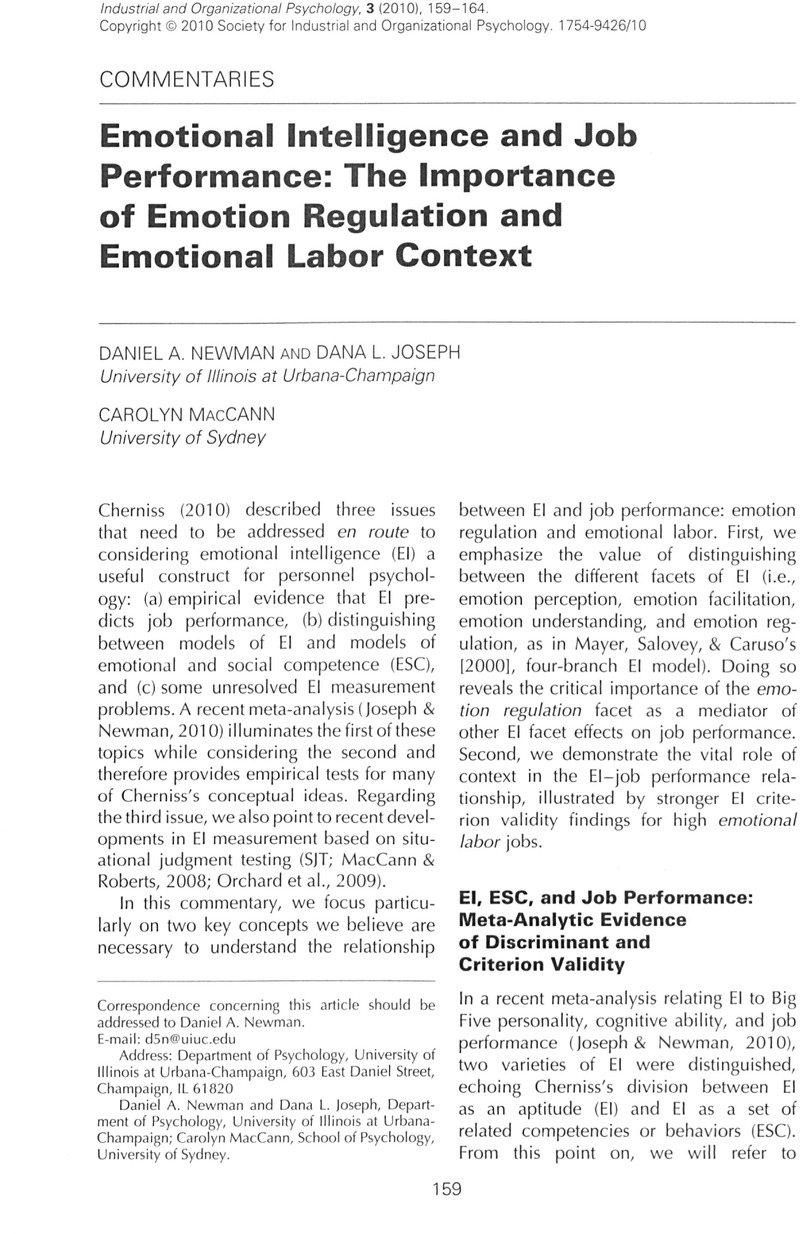Crossref Citations
This article has been cited by the following publications. This list is generated based on data provided by Crossref.
2010.
Erratum.
Industrial and Organizational Psychology,
Vol. 3,
Issue. 3,
p.
384.
Cherniss, Cary
2010.
Emotional Intelligence: New Insights and Further Clarifications.
Industrial and Organizational Psychology,
Vol. 3,
Issue. 2,
p.
183.
2010.
Erratum.
Industrial and Organizational Psychology,
Vol. 3,
Issue. 3,
p.
384.
Lopez-Zafra, Esther
Garcia-Retamero, Rocio
and
Martos, M. Pilar Berrios
2012.
The Relationship Between Transformational Leadership and Emotional Intelligence from a Gendered Approach.
The Psychological Record,
Vol. 62,
Issue. 1,
p.
97.
Hayward, Renae M.
and
Tuckey, Michelle R.
2013.
The Role of Emotion and Emotion Regulation in Job Stress and Well Being.
Vol. 11,
Issue. ,
p.
35.
McCoach, D. Betsy
Gable, Robert K.
and
Madura, John P.
2013.
Instrument Development in the Affective Domain.
p.
1.
Ryan, Ann Marie
and
Ployhart, Robert E.
2014.
A Century of Selection.
Annual Review of Psychology,
Vol. 65,
Issue. 1,
p.
693.
Totawar, Abhishek Kumar
and
Nambudiri, Ranjeet
2014.
Mood and Self-Efficacy.
Human Resource Development Review,
Vol. 13,
Issue. 3,
p.
314.
McCleskey, Jim
2014.
Emotional intelligence and leadership.
International Journal of Organizational Analysis,
Vol. 22,
Issue. 1,
p.
76.
Zeidner, Moshe
Matthews, Gerald
and
Shemesh, Dorit Olenik
2016.
Cognitive-Social Sources of Wellbeing: Differentiating the Roles of Coping Style, Social Support and Emotional Intelligence.
Journal of Happiness Studies,
Vol. 17,
Issue. 6,
p.
2481.
Hosie, P.
Sharma, A.
Herkenhoff, L.
Heydenfeldt, J.A.
and
Kingshott, R.P.J.
2016.
Asia Pacific Human Resource Management and Organisational Effectiveness.
p.
39.
Washington, Germaine D.
and
Shen, Libi
2017.
Handbook of Research on Human Factors in Contemporary Workforce Development.
p.
226.
Shkoler, Or
and
Tziner, Aharon
2017.
The mediating and moderating role of burnout and emotional intelligence in the relationship between organizational justice and work misbehavior.
Revista de Psicología del Trabajo y de las Organizaciones,
Vol. 33,
Issue. 2,
p.
157.
Scult, Matthew A.
Knodt, Annchen R.
Swartz, Johnna R.
Brigidi, Bartholomew D.
and
Hariri, Ahmad R.
2017.
Thinking and Feeling.
Clinical Psychological Science,
Vol. 5,
Issue. 1,
p.
150.
Washington, Germaine D.
and
Shen, Libi
2018.
Social Issues in the Workplace.
p.
206.
Hughes, David J.
and
Evans, Thomas Rhys
2018.
Putting ‘Emotional Intelligences’ in Their Place: Introducing the Integrated Model of Affect-Related Individual Differences.
Frontiers in Psychology,
Vol. 9,
Issue. ,
Zysberg, Leehu
and
Hemmel, Rotem
2018.
Emotional Intelligence and Physical Activity.
Journal of Physical Activity and Health,
Vol. 15,
Issue. 1,
p.
53.
Fiori, Marina
and
Vesely-Maillefer, Ashley K.
2018.
Emotional Intelligence in Education.
p.
23.
Yan, Shuqun
Feng, Yuting
Xu, Yaoshan
and
Li, Yongjuan
2019.
Psychometric Properties and Criterion Validity of STEU-B and STEM-B in Chinese Context.
Frontiers in Psychology,
Vol. 10,
Issue. ,
Kotsou, I.
Mikolajczak, M.
Heeren, A.
Grégoire, J.
and
Leys, C.
2019.
Improving Emotional Intelligence: A Systematic Review of Existing Work and Future Challenges.
Emotion Review,
Vol. 11,
Issue. 2,
p.
151.



